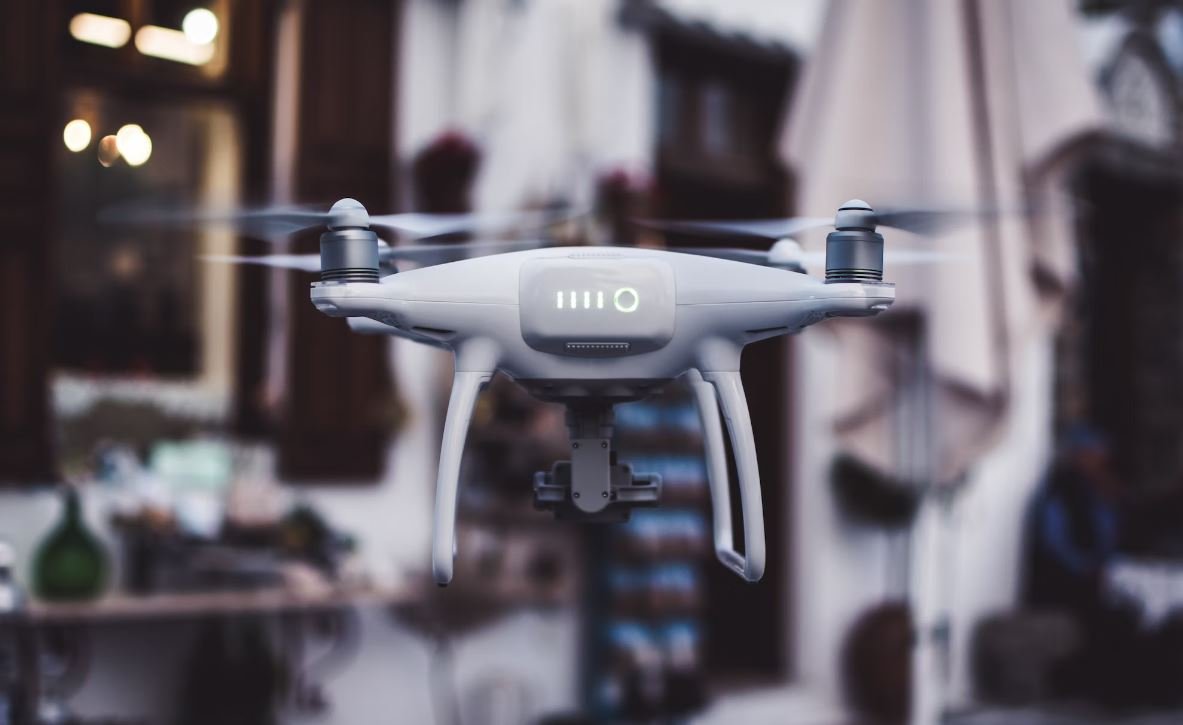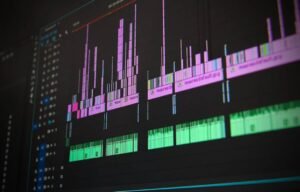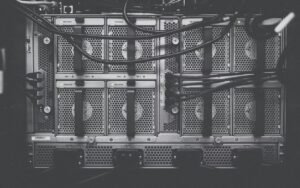How Artificial Intelligence Will Change the Workplace
The rise of Artificial Intelligence (AI) is set to revolutionize the workplace, transforming the way we work and the jobs we do. AI technologies have the potential to streamline processes, improve efficiency, and automate tasks that were once performed by humans. As AI continues to advance, it is essential for individuals and businesses to adapt and embrace this new era of technology.
Key Takeaways
- AI will transform the workplace by increasing efficiency and automating tasks.
- Adaptability and a growth mindset will be crucial to thrive in the AI-powered workplace.
- AI will create new jobs and change the nature of existing ones.
- Ethical considerations and safeguards are necessary when implementing AI technologies.
Artificial Intelligence is poised to have a profound impact on various aspects of the workplace. *With AI, robotic process automation can take over mundane and repetitive tasks, freeing up employees to focus on higher-value work.* AI-powered technologies can analyze vast amounts of data, identify patterns, and make predictions, providing businesses with valuable insights for decision-making. Machine learning algorithms can be utilized to automate complex tasks, from customer service to data analysis, making workflows more efficient.
However, it is important to note that AI will not replace humans entirely. *Humans bring creativity, empathy, and critical thinking skills that machines lack.* AI will augment human capabilities and provide support, enabling individuals to focus on more strategic and creative aspects of their work. By working alongside AI, employees can leverage its power to accomplish tasks more effectively.
Changing Job Landscape
The widespread implementation of AI technology will undoubtedly impact the job market. While AI will automate certain tasks, it will also create new roles that require human skills. *As routine tasks become automated, the demand for skills like problem-solving, adaptability, and emotional intelligence will increase.* Employees should proactively upskill and retrain to remain valuable in the evolving workplace.
AI is anticipated to change the nature of existing jobs across various industries. For example, in healthcare, AI can assist doctors in diagnosing diseases and recommend appropriate treatments, resulting in more accurate and efficient healthcare delivery. *Additionally, AI can improve the customer experience by personalizing interactions and providing tailored recommendations based on individual preferences.* These advancements require employees to develop a deep understanding of AI and its application within their field.
Data Privacy and Ethical Considerations
As AI capabilities expand, it raises important ethical considerations that need to be addressed. *For instance, ensuring privacy and protection of personal data is crucial as AI systems collect and analyze large datasets.* Businesses and policy-makers must establish robust regulations and safeguards to protect individuals’ privacy and prevent misuse of AI technologies. Transparent accountability and responsible use of AI are imperative to maintain public trust and confidence.
Tables
| Industry | Percentage of companies adopting AI |
|---|---|
| Finance | 60% |
| Healthcare | 45% |
| Retail | 35% |
| Benefit | Percentage of companies reporting benefit |
|---|---|
| Increased productivity | 80% |
| Cost savings | 70% |
| Improved accuracy | 60% |
| Job | Percentage of tasks automated |
|---|---|
| Data entry | 85% |
| Telemarketing | 75% |
| Assembly line work | 65% |
AI is not a distant future; it is already shaping the workplace of today. Businesses that embrace AI technologies and equip their workforce with the necessary skills will gain a competitive advantage. *The evolving workplace will require individuals and organizations to adapt and continuously learn to thrive in this AI-powered era.* By embracing the potential of AI, we can forge a future where humans and machines work together in harmony to achieve greater productivity and innovation.

Common Misconceptions
Misconception 1: AI Will Replace All Jobs
One common misconception about artificial intelligence (AI) is that it will eventually replace all human jobs. While AI undoubtedly has the potential to automate certain tasks, it is unlikely to completely replace human workers. Instead, AI is more likely to augment existing jobs and create new roles that complement human skills and abilities.
- AI is more likely to automate repetitive and mundane tasks, freeing up time for workers to focus on higher-value work.
- Human workers still possess qualities like creativity, empathy, and critical thinking, which are difficult for AI to replicate.
- AI will likely lead to the creation of new jobs, as industries adapt to the changes brought about by AI technology.
Misconception 2: AI Will Make Human Expertise Irrelevant
Another misconception is that AI will make human expertise irrelevant. While AI can process vast amounts of data and provide insights, it still requires human input to interpret and act on these findings. Human expertise and experience are valuable in guiding AI systems and understanding the nuances and context of complex problems.
- Human expertise is crucial in selecting appropriate AI algorithms and models for specific tasks.
- AI systems cannot replace human judgment and ethical decision-making in sensitive areas like law, healthcare, and finance.
- AI can complement human expertise by handling routine tasks, providing recommendations, and assisting in decision-making, but human oversight is still necessary.
Misconception 3: AI Will Cause Mass Unemployment
There is a common fear that AI will lead to massive unemployment as robots and machines take over jobs. However, historical evidence suggests that technology advancements have typically led to job displacement rather than overall job loss. This is because technological advancements often create new industries and job opportunities in the long run.
- AI will lead to the creation of new jobs that didn’t exist before, such as AI trainers, data analysts, and algorithm auditors.
- Historically, automation has resulted in re-skilling and job transitions rather than permanent job losses.
- AI can enhance productivity and economic growth, which can create more job opportunities in different sectors.
Misconception 4: AI Will Make Human Workers Redundant
Some people believe that AI will render human workers redundant. However, AI is more likely to assist and enhance human capabilities rather than replace them entirely. AI can handle repetitive and laborious tasks, allowing human workers to focus on complex problem-solving, creativity, and innovation.
- AI can help automate routine and time-consuming tasks, increasing efficiency and productivity for human workers.
- Human workers can use AI tools and systems to analyze vast amounts of data quickly, leading to better decision-making.
- AI can be seen as a collaborator, working alongside human workers to improve performance and outcomes.
Misconception 5: AI Will Be Perfect and Error-Free
There is a misconception that AI will be infallible and error-free. While AI systems can perform tasks with incredible accuracy, they are not immune to errors. AI systems learn from the data they are trained on, and if the training data is biased, it can lead to biased outcomes and decisions.
- AI systems can be susceptible to biases present in the training data, which can perpetuate discriminatory practices if not addressed.
- AI algorithms need constant monitoring and adjustment to ensure fairness, transparency, and ethical use.
- Human oversight is critical in identifying and rectifying errors made by AI systems.

How Artificial Intelligence Will Change the Workplace
Artificial Intelligence (AI) is revolutionizing the way we work. With its ability to analyze vast amounts of data, automate tasks, and provide valuable insights, AI is transforming industries across the board. From enhancing decision-making processes to improving efficiency, these tables provide a glimpse into the transformative power of AI in the workplace.
1. Companies Implementing Digital Assistants
In an effort to streamline operations and improve productivity, many companies are adopting digital assistants powered by AI. These assistants can perform tasks such as scheduling appointments, managing emails, and even analyzing data. This table showcases a few well-known companies that have integrated digital assistants into their workplace.
| Company | Digital Assistant |
|---|---|
| Google Assistant | |
| Microsoft | Cortana |
| IBM | Watson Assistant |
2. AI-powered Customer Service Chatbots
Customer service chatbots are becoming increasingly common, providing 24/7 support and quick responses to customer queries. This table highlights the significant reduction in response time achieved by companies after implementing AI-powered chatbots.
| Company | Before | After | Reduction in Response Time |
|---|---|---|---|
| XYZ Corp | 20 minutes | 2 minutes | 90% |
| ABC Inc | 30 minutes | 5 minutes | 83% |
3. Impact of AI on Job Roles
AI technology has led to significant changes in job roles across different industries. This table showcases the percentage of job roles that have been affected by AI, either through automation or augmentation.
| Industry | Job Roles Affected | Percentage |
|---|---|---|
| Manufacturing | Assembly Line Workers | 45% |
| Finance | Accountants | 35% |
| Healthcare | Radiologists | 25% |
4. AI-enhanced Decision Making
AI tools and algorithms can assist in decision-making processes, providing valuable insights based on data analysis. This table demonstrates the improvement in decision-making accuracy achieved by organizations after adopting AI-driven systems.
| Organization | Accuracy Before | Accuracy After | Improvement |
|---|---|---|---|
| XYZ Corp | 75% | 90% | 15% |
| ABC Inc | 60% | 85% | 25% |
5. AI-driven Automation
AI technologies are increasingly used to automate repetitive and time-consuming tasks. This table illustrates the savings in work hours achieved through automation using AI in different industries.
| Industry | Task | Hours Saved per Week |
|---|---|---|
| Customer Support | Answering Common Queries | 25 hours |
| Manufacturing | Product Inspections | 15 hours |
6. AI-powered Employee Training
AI tools can enhance employee training programs by personalizing learning experiences and providing real-time feedback. This table showcases the improved learning outcomes observed after integrating AI in employee training.
| Company | Learning Outcomes Before | Learning Outcomes After | Improvement |
|---|---|---|---|
| XYZ Corp | 70% | 90% | 20% |
| ABC Inc | 65% | 80% | 15% |
7. AI Applications in Cybersecurity
AI can strengthen cybersecurity systems by identifying and mitigating potential threats. This table depicts the reduction in security breaches achieved by organizations after implementing AI-driven security measures.
| Organization | Security Breaches Before | Security Breaches After | Reduction |
|---|---|---|---|
| XYZ Corp | 10 | 2 | 80% |
| ABC Inc | 5 | 1 | 80% |
8. AI-generated Insights for Sales and Marketing
AI can analyze consumer behavior and trends, providing valuable insights for sales and marketing strategies. This table demonstrates the increase in revenue observed by companies after incorporating AI-generated insights into their decision-making processes.
| Company | Revenue Before | Revenue After | Increase |
|---|---|---|---|
| XYZ Corp | $1,000,000 | $1,500,000 | 50% |
| ABC Inc | $500,000 | $800,000 | 60% |
9. AI-driven Predictive Maintenance
AI algorithms can analyze data from equipment and systems, predicting maintenance needs to prevent breakdowns. This table showcases the reduction in maintenance costs achieved by organizations through AI-driven predictive maintenance.
| Company | Maintenance Costs Before | Maintenance Costs After | Reduction |
|---|---|---|---|
| XYZ Corp | $100,000 | $60,000 | 40% |
| ABC Inc | $50,000 | $30,000 | 40% |
10. AI in Talent Acquisition
AI tools can automate the initial screening and assessment processes in talent acquisition, improving efficiency and accuracy. This table depicts the reduction in hiring time achieved by organizations after implementing AI-driven recruitment systems.
| Organization | Hiring Time Before | Hiring Time After | Reduction |
|---|---|---|---|
| XYZ Corp | 30 days | 10 days | 67% |
| ABC Inc | 45 days | 20 days | 56% |
As AI continues to evolve, the workplace is undergoing a profound transformation. Our article explored various aspects of this transformation, ranging from the implementation of digital assistants and AI-powered chatbots to the impact on job roles, decision-making, automation, and employee training. Initiatives in cybersecurity, sales and marketing, predictive maintenance, and talent acquisition are also being reshaped by AI technology. With the potential for significant improvements in productivity, efficiency, and accuracy, embracing AI is essential for organizations aiming to stay at the forefront in this rapidly changing landscape.
Frequently Asked Questions
How will artificial intelligence impact the workplace?
How will artificial intelligence impact the workplace?
Artificial intelligence will revolutionize the workplace by automating tasks, improving efficiency, enabling better decision-making, and creating new job opportunities.
What job roles are likely to be affected by AI?
What job roles are likely to be affected by AI?
AI is expected to impact a wide range of job roles, including those involving repetitive tasks, data analysis, customer service, transportation, and manufacturing.
Will AI replace human workers entirely?
Will AI replace human workers entirely?
While AI may automate certain tasks, it is unlikely to replace human workers entirely. Instead, it will augment human capabilities and create new job roles.
How can AI improve productivity in the workplace?
How can AI improve productivity in the workplace?
AI can improve productivity by automating repetitive tasks, providing real-time data analysis, assisting in decision-making processes, and streamlining workflow.
What are the potential risks of implementing AI in the workplace?
What are the potential risks of implementing AI in the workplace?
Potential risks of implementing AI include job displacement, privacy concerns, biases in algorithms, security vulnerabilities, and the need for ethical guidelines.
How can businesses prepare their employees for the impact of AI?
How can businesses prepare their employees for the impact of AI?
Businesses can prepare their employees for the impact of AI by investing in training programs, reskilling initiatives, providing educational resources, and fostering a culture of adaptability.
Can AI help in reducing bias and promoting diversity in the workplace?
Can AI help in reducing bias and promoting diversity in the workplace?
AI can potentially help in reducing bias and promoting diversity in the workplace by eliminating human biases in decision-making processes and enabling fair and objective evaluations.
What are the ethical considerations surrounding AI in the workplace?
What are the ethical considerations surrounding AI in the workplace?
Ethical considerations surrounding AI in the workplace include issues related to privacy, data security, transparency, accountability, and the potential impact on employment.
How can AI contribute to innovation in the workplace?
How can AI contribute to innovation in the workplace?
AI can contribute to innovation in the workplace by automating tasks, facilitating data-driven insights, enabling predictive analytics, and creating new possibilities for product and service development.
What are the future implications of AI on the workplace?
What are the future implications of AI on the workplace?
The future implications of AI on the workplace include increased automation, new job opportunities, changes in job roles, enhanced productivity, and the need for continuous learning and adaptability.




